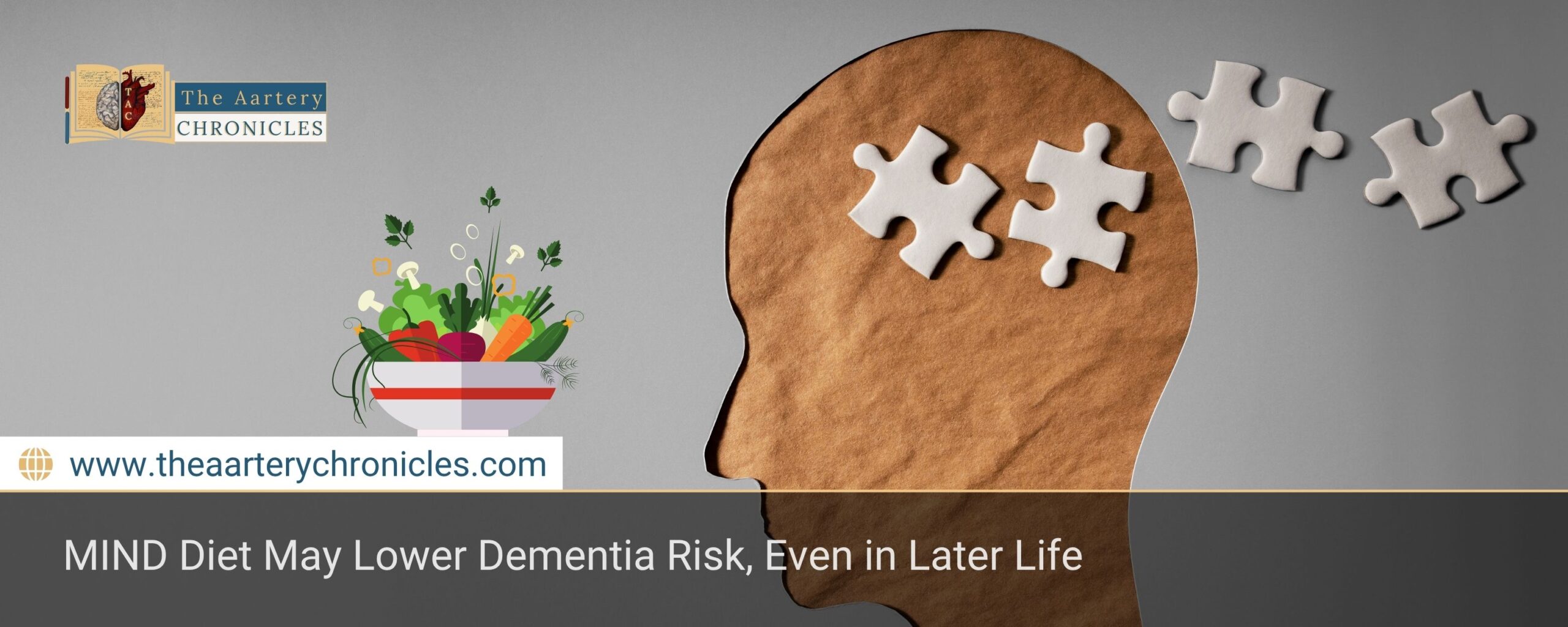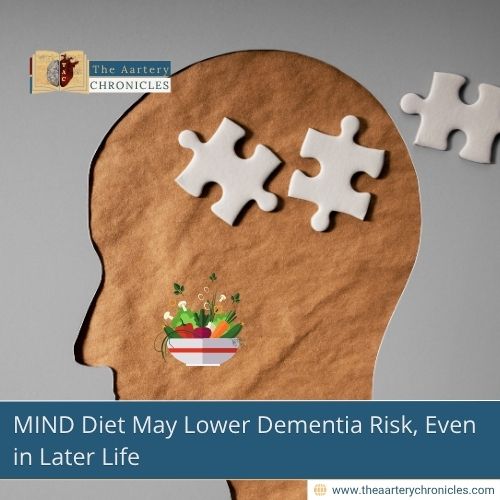

How the MIND Diet Protects Your Brain and Prevents Dementia
Summary: A new study shows that following the MIND diet, even later in life, can significantly reduce the risk of dementia, including Alzheimer’s disease. This brain-healthy eating plan, blending elements of the Mediterranean and DASH diets, is especially effective when consistently followed or improved over time. The study also highlights how different racial and ethnic groups may respond differently to the diet, pointing to the need for more tailored nutrition strategies.
Can Your Diet Help Prevent Dementia? Science Says Yes
As dementia cases rise alongside an aging population, more people are asking: Can changing your diet really protect your brain?
The answer is promising. A recent study suggests that adopting the MIND diet, even later in life, can significantly reduce the risk of developing Alzheimer’s disease and related dementias.
The MIND diet (short for Mediterranean-DASH Intervention for Neurodegenerative Delay) is a hybrid of two proven eating plans: the heart-healthy Mediterranean diet and the DASH diet, known for its effectiveness in managing blood pressure. This unique combination also emphasises foods specifically linked to brain health: leafy greens, berries, nuts, and olive oil.
Why the MIND Diet Stands Out
Unlike many other healthy diets, the MIND diet has demonstrated a more consistent and stronger association with lower dementia risk. And here’s the best part: it works at any age. Whether you’re 45 or 75, it’s never too late to make smarter food choices for a healthier brain.
“This suggests that it is never too late to adopt a healthy diet to prevent dementia,” said Dr. Song-Yi Park, Associate Professor, University of Hawaii at Manoa.
Dr. Park presented these findings at NUTRITION 2025, the flagship annual meeting of the American Society for Nutrition held in Orlando, Florida.
What the Research Revealed
This wasn’t a small study. Researchers tracked the diets and health outcomes of nearly 93,000 U.S. adults, aged 45–75, over multiple decades through the Multiethnic Cohort Study. More than 21,000 participants developed dementia, offering a valuable dataset to examine the impact of dietary patterns.
Key findings:
- 9% lower dementia risk among those who closely followed the MIND diet from the start
- 13% reduction in risk seen specifically among African American, Latino, and White participants
No significant risk reduction among Native Hawaiian or Asian American participants at baseline
Diet Works Best When Improved Over Time
Interestingly, people who improved their diet over time, even if they didn’t start strong, saw the biggest benefit:
- A 25% lower risk of dementia compared to those whose diet habits worsened over the years.
- This trend was consistent across all age groups and racial backgrounds, reinforcing the idea that progress, not perfection, is what counts most.
Why Some Groups Benefit More Than Others
While the MIND diet helped many, its impact wasn’t uniform. Dr. Park noted that dietary habits, preferences, and cultural differences could influence outcomes.
“We found that the protective relationship was more pronounced among African Americans, Latinos, and Whites,” she said.
“A tailored approach may be needed when evaluating different subpopulations’ diet quality.”
She also pointed out that Asian Americans tend to have lower baseline dementia rates, possibly due to existing traditional diets that already support brain health.
More Research needed, More Personalization
Although this was an observational study, the results are compelling enough to warrant intervention trials.
- Future studies could better define how personalized dietary strategies based on cultural and genetic backgrounds may further enhance brain protection.
It’s Never Too Late to Eat for Your Brain
Whether you’re in your 40s or your 70s, small, consistent improvements in diet can make a big difference in brain health. The MIND diet offers a powerful, evidence-based approach to lowering dementia risk, especially when adopted and maintained over time. So yes, what’s on your plate today might just shape how sharp your mind stays tomorrow.

Dane
I am an MBBS graduate and a dedicated medical writer with a strong passion for deep research and psychology. I enjoy breaking down complex medical topics into engaging, easy-to-understand content, aiming to educate and inspire readers by exploring the fascinating connection between health, science, and the human mind.








